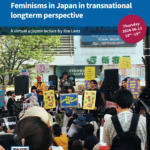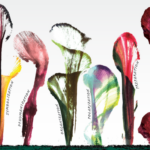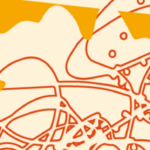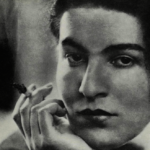 Lecture Series des Instituts für Japanologie der Univ. Wien (Web)
Lecture Series des Instituts für Japanologie der Univ. Wien (Web)
Zeit: 13.06.2024, 18:00-19:30 Uhr
Ort: virtueller Raum – via Wien
Feminisms in Japan in transnational longterm perspective
Feminisms in Japan have a singular and crucial meaning in international perspective: They developed as an autonomous force selecting international impulses (for example equality, participation and female eros) and locating them in their context. And they were confronted with Japan’s singular development which was threatened by Western colonialism and transformed into a colonizing imperialist nation. They raise the issues of feminist autonomy in diverse cultural contexts and postcolonial critical memory. Read more and Zoom-Link …(Web)
Forschungskolloquium zu aktuellen Themen der Japanforschung der LMU München (Web)
Zeit: 20.06.2024, 18:15-19:45 Uhr
Ort: Univ. München
Die neue Frauenbewegung in Japan und Deutschland im Vergleich
In Japan wie Deutschland forderten die Frauenbewegungen radikale Selbstbestimmung im Denken und Handeln, eine grundlegende Veränderung der neopatriarchalen Strukturen und Gleichheit in intersektionaler Sicht. Dennoch unterschieden sie sich stark. Ilse Lenz will diese Unterschiede und Gemeinsamkeiten herausarbeiten, indem sie auf ihr Denken und ihre Praktiken zu den folgenden Fragen eingeht: Geschlecht, Intersektionalität, Lesbianismus und die postkoloniale transnationale Vernetzung mit ostasiatischen Frauenbewegungen in Japan. Sie beendet den Vortrag damit, die Veränderungen und die neuen Herausforderungen an den Feminismus heute zu umreißen.
Prof. (i.R.) Dr. Ilse Lenz studierte in den USA, Japan und an der LMU München; sie promovierte an der FU Berlin zur Frauenarbeit in der japanischen Industrialisierung aus entwicklungssoziologischer Sicht. In ihrer Habilitation in Münster 1989 untersuchte sie das Geschlechterverhältnis auf dem japanischen Arbeitsmarkt und die Einflüsse der Computerisierung Continue reading

 Department of Ethnic Studies at California State Univ.
Department of Ethnic Studies at California State Univ.  13. Landesweiter Tag der Genderforschung in Sachsen-Anhalt
13. Landesweiter Tag der Genderforschung in Sachsen-Anhalt  Ringvorlesung des Referats Genderforschung an der Univ. Wien; Organisation: Tomi Adeaga
Ringvorlesung des Referats Genderforschung an der Univ. Wien; Organisation: Tomi Adeaga  Wienmuseum
Wienmuseum  Hungarian Historical Review
Hungarian Historical Review  College for Social Sciences and Humanities (UA Ruhr) and Cultural Anthropology of Textiles, TU Dortmund Univ.
College for Social Sciences and Humanities (UA Ruhr) and Cultural Anthropology of Textiles, TU Dortmund Univ.